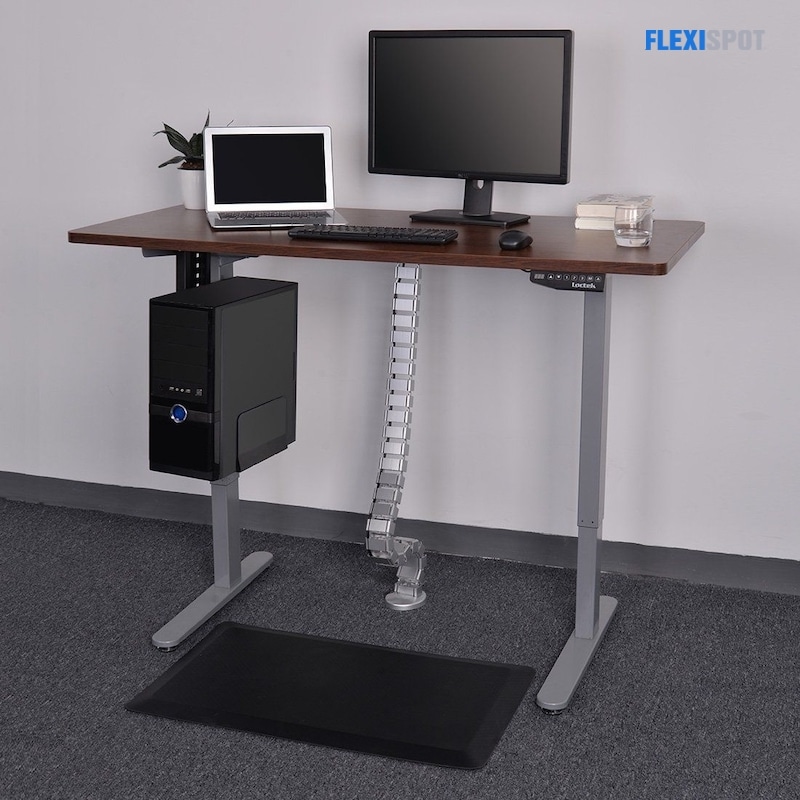Burnout is currently one of the most common causes of inefficiency, poor work performance, and bad moods. People are prone to burnout due to their work environment, which is what we will discuss today.
Over the last few years, remote working has been increasingly popular. While this working technique is ideal on paper, it may not be suitable for people accustomed to spending their days at an office.
Furthermore, 69 percent of workers who work from home are burnt out, which is a concerning statistic for organizations.
It is important to understand that burnout is not the same as work-related stress, and it does not simply refer to being exhausted from work.
This article will look at the basics of work from home burnout, what causes it, and how to deal with it. Make sure to read to the end of the post if you are a remote worker who is suffering some of the symptoms listed below.
What Exactly is Burnout?
Excessive stress from your everyday work routine is a common cause of this amount of weariness. When you are at work, it is natural to feel agitated now and then.
However, if you are constantly frustrated and agitated, you may become emotionally depleted, making you less likely to complete your daily obligations at work.
It is important to remember that the repercussions of remote job burnout can impact your personal life as well. If you do not take care of your burnout reasons on time, you risk transferring your frustration to other aspects of your life, such as your social life, family, and so on.
Furthermore, the long-term impacts of remote job burnout can cause physical diseases, such as colds or fevers.
How to Tell if You are Burnt Out
It can be challenging to tell if someone is experiencing burnout immediately away, and they may not even notice till it's too late in some circumstances. Fortunately, there are several warning signs that you are on your road to severe burnout while working from home.
In general, the following are some of the most typical signs of work-from-home burnout:
- You are constantly exhausted.
- You dread going to work every day.
- You have lost interest in your work.
- You have the impression that every day is a dreadful day.
- You do not think you are valued.
It is important to remember that burnout symptoms differ from person to person. Furthermore, you do not shift from a "quiet" state to burnout overnight; burnout develops over time and becomes worse.
Here are some of the symptoms you might feel if you work from home and are burned out:
- You may be too preoccupied with doing chores required of you to recognize some physical signs of burnout. You may be weary, have frequent muscle discomfort and illness, have irregular sleeping habits and have a change in appetite.
- Aside from the obvious physical signs, you may also have a languishing sensation. Your mindset has shifted dramatically; you no longer feel like you are dragging yourself to work, you are no longer joyful and satisfied, and you may even feel lonely.
- Burnout can have a significant impact on your overall health, and it could also show up in the way you go about your daily routine.
- Your routines shift, and your behavior deviates from the norm. You have a propensity for slacking off, procrastinating, avoiding duties, and even succumbing to unhealthy habits or vices.
You can avoid significant workplace breakdowns if you pay attention to these indications. Even if the symptom appears minor, do not dismiss it; it could save you a lot of trouble.
What is the Difference Between Stress and Burnout?
Burnout and stress are often mistaken, as previously stated. While stress causes burnout, the two are not the same.
Stress is a combination of physical, mental, and emotional pressures that might contribute to future health issues. Overactive emotions, anxiety disorders, and other problems can occur in people who are stressed.
On the other hand, burnout is more associated with a sense of being inadequate on the inside. While you can tell when you are stressed, you may not realize you are suffering from remote work burnout until the symptoms are severe.
Why Do People Experience Burnout When They Work from Home?
It may seem weird for someone who works from home to experience burnout. Working from home is frequently associated with convenience, flexibility, and other advantages.
Keep in mind, however, that not everyone reacts to different working environments in the same manner.
Some people may feel isolated when working remotely. Collaborative work settings are appealing to certain employees because they encourage focus.
If you work alone in your home, though, there may be nothing to push you to start working when you need to.
Remote working has also been related to irregular work schedules, employee exploitation, and other issues. As you can see, burnout may occur in any situation if certain circumstances are satisfied.
How Many People are Burned Out?
Apart from the figures presented at the top of this page, there are numerous other reports on work-from-home burnout. Furthermore, Millennials are the group most impacted by remote job burnout, accounting for 58 percent of those afflicted.
How to Deal with Workplace Burnout
There are numerous things you can take to prevent further damage to your physical and emotional health, whether you are already suffering burnout symptoms or want to be cautious. This method entails the following:
- Recognize: While at work, keep an eye out for any signs of burnout, even if they seem minor.
- Reverse: Seek aid and resources to manage your long-term stress.
- Resiliency: Take care of your emotional and physical well-being by being resilient to stress.
The following is a comprehensive list of suggestions for dealing with burnout:
Consider Your Work from a Different Angle
Regrettably, not everyone is currently employed in their ideal position. While quitting your job and seeking something you enjoy is not always the best decision, there are certain things you may do to improve your attitude toward your current position.
If you despise your job, you could strive for meaning and fulfillment in other aspects of your life, such as hobbies, family, or friends. Request a few days off if you have the opportunity, so you can recharge and return to work with a fresh perspective.
Seek Assistance from Others
It can be challenging to deal with work-from-home burnout on your own in some instances. While we are more than capable of dealing with the problem on our own, the frame of mind we are in when we are burnt out can make it difficult to see clearly.
It is not the other person's responsibility to heal your burnout but having a decent listener on hand is usually helpful.
Make every effort to avoid interaction with negative people, as this may exacerbate the burnout symptoms.
Assess Your Life's Priorities
If you are suffering work from home burnout, something in your current schedule is not working correctly. Remember that life is not all about work, and you should devote time to other aspects of your life that may have been neglected due to remote working.
To begin, try to establish work boundaries. Saying "no" is the best way to proceed if you can't handle a task because you've overextended yourself. One of the most prevalent causes of burnout is a lack of sleep, so make sure you get enough each night.
Eat a Balanced Diet
While it may not appear to be a considerable concern, what you put into your body can have an impact on your mood and energy levels throughout the day.
If you are not on a diet, keep sweets and refined carbs to a minimum, eat everything in moderation, and stay away from cigarettes.
Think About Exercising
Exercise is an effective method of reducing stress and burnout, and it can also significantly improve your mood. You are more likely to notice a substantial shift in your mood during the day if you exercise for at least 30 minutes each day.
Get Ergonomic Office Furniture for Your Home
People do not work in a pleasant setting, which is a significant cause of work from home burnout. Traditional office equipment can create muscle strain, bodily pain, and other problems, all of which can impair your attitude.
Fortunately, there is some work-from-home equipment that you might find helpful. These requirements for a home office are ideal for transforming any ordinary area into a productive workspace.
Primarily, you must work at a productive desk where you can store everything you require without feeling cluttered. An electric standing desk is the best option in these situations.
Our top two selections for ergonomic office items are the Kana Pro Bamboo Standing Desk and FlexiSpot's Ergonomic Chair OC3B, both of which provide everything you need at an affordable price.
Combining these two ergonomic goods can already provide you with a lot more pleasant and productive working environment, reducing the likelihood of burnout.
Keep in mind that your ergonomic experience does not end with your workstation and chair. FlexiSpot also offers a variety of ergonomic items and accessories, and the Standing Desk Anti-Fatigue Mat MT1 comes highly recommended.
Conclusion
As you can see, there are a variety of approaches to avoiding burnout, and if you are already experiencing symptoms, it is not too late to seek help and address the problem.
Consider looking at our employee buy program for more alternatives on ergonomic equipment if you are trying to modify your present home office setup to reduce work from home burnout!





